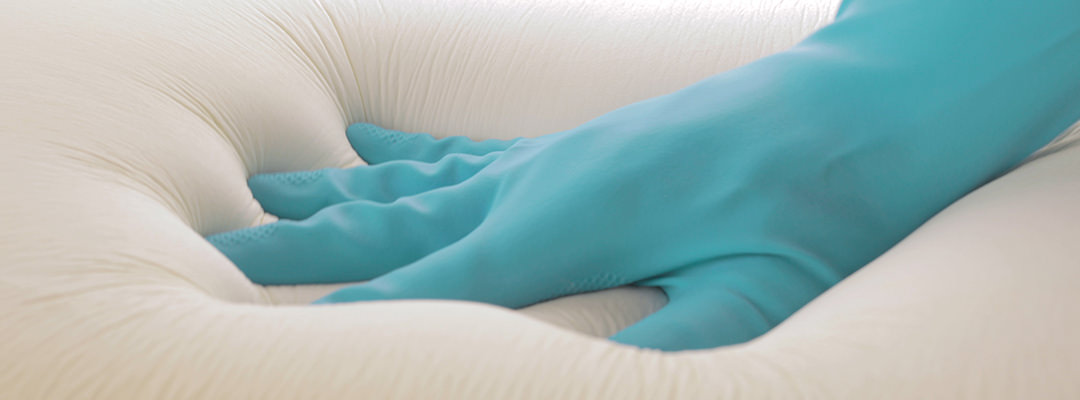Since mattresses are quite popular, there is more than one type of mattress out there, and not all of them are alike. Some mattresses are made to offer you more comfort while you sleep, while other types are beneficial for people who suffer from neck or back pain.
While we all have our preferences when it comes to the type of mattress we use, there are a few things you should know especially if you prefer to use a memory foam mattress. Of course, it is known for being the most comfortable, and it is the most popular type of mattress.
However, because memory foam is a synthetic material, the symptoms of a toxic mattress are not medical concerns, but they may include toxic chemicals that might cause long-term health issues.
While you can choose to replace your memory foam after the recommended lifespan to avoid the chemicals that could be released if the mattress got too old. In this article, Sleep Underground will go through all the symptoms of a bad mattress so that you can look out for any possible consequences. We encourage you to read this carefully while your memory foam mattress expands.
Can Memory Foam Mattresses Become Toxic?
Well, if you are looking for a short answer, it is yes. This is because memory foam mattresses are categorized as Polyurethane foam with additional chemicals, these materials increase the elasticity and viscosity which is used in most foam mattresses nowadays.
And even though most of them are made using the same material, they can be different from one brand to another, making the levels of toxicity different from one mattress to another.
What Are the Materials that Can Cause You Harm?
One of the toxic materials in a memory foam mattress is Formaldehyde. Even though it is not one of the components of the mattress, it is still used to glue the inner layers together. It opposes a risk as it can escape as a gas as the mattress gets older.
The next harmful component of a memory foam mattress is Isocyanates. Urethane is used to make synthetic foams. This component can be quite risky as it can emit active substances known as isocyanates which oppose a risk to your immune system in the long run.
Additionally, memory foam mattresses usually include Benzene, which could easily irritate the eyes and even affect the mucus membranes if you are exposed to it for a long time. The same thing goes for Acetone. Acetone is a liquid used to make the foam structure more consistent, and it irritates eyes and skin in addition to having a very strong -annoying- scent.
Of course, you would want to know which mattresses carry those chemicals to avoid buying them in the future, but unfortunately, most of the mattresses brands keep their components secret, so there is no way to know which ones oppose danger.
On the bright side, there are a few things that you can keep in mind to find out when your mattress goes bad. Here are the most common symptoms of a toxic memory foam mattress.
What Are the Symptoms of a Toxic Mattress Exposure?
Polyurethane is one of the main components of a memory foam mattress, and it aids in making the mattress a lot cheaper, a lot more comfortable, and lighter so you can move it around easily.
On the downside, polyurethane foam contains plenty of chemical substances that could be harmful to your health. In fact, most people are not aware of those risks or of those chemical components at all.
So, since there are no noticeable changes in the mattress’s overall form, you might not be able to tell if something is wrong just by looking at the mattress or checking its state.
Therefore, the only way to know if your mattress is harmful is to keep an eye out for the symptoms you might feel if the mattress became harmful. Those symptoms might include:
- Headaches
- Frequent muscle pain
- Sore throat
- Eye irritation
- Skin irritation
- Nose irritation
- Trouble breathing
- Frequent nausea
- Chest pain or tightness
Other advanced complications of toxic mattress exposure are memory loss, lack of cognitive functions, disruption of the endocrine system, reproductive system changes, and cancerous effects.
All these effects could be life-threatening. Therefore, you should always make sure that you are buying a healthy and comfy mattress, here are the tips on choosing the next mattress.
How to Choose a Safe Mattress?
Well, some people choose to use a mattress cover. However, it is not recommended to use it as it is made with breathable materials which could easily allow the harmful chemicals to be released exposing you to risks.
Therefore, the best thing to do after noticing the symptoms is to replace the mattress altogether. However, while choosing the next mattress, try to go for one without memory foam. Some mattresses out there are made with latex or other materials that are not harmful.
Additionally, you can look for the certification indicating that this mattress meets the recommended federal standards on volatile organic compounds. These certifications are made by third-party organizations and you can see them on the mattress label (GreenGuard, and CertiPUR-US, GOLS< GOTS)
Some brands use safe components such as plant-based foams. Which could be made of castor oils or soybeans as a replacement for petroleum. This is an affordable option and can reduce the chemical risks heavily.
Even though most of us never really thought about it, memory foam mattresses could be very harmful and even life-threatening. Of course, it was hard to notice those disadvantages as they are pretty comfortable.
On the bright side, there are plenty of things that we can do to avoid these symptoms and to protect ourselves and our loved ones. Follow the instructions from your manufacturer and make sure to check out the certifications before buying the next mattress.





